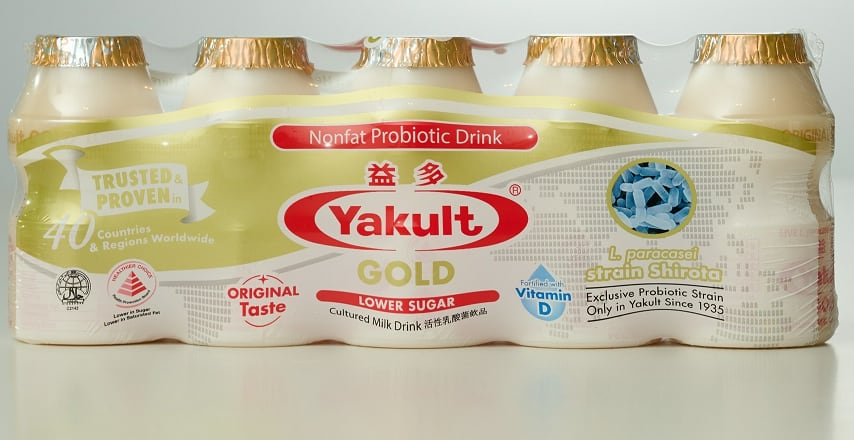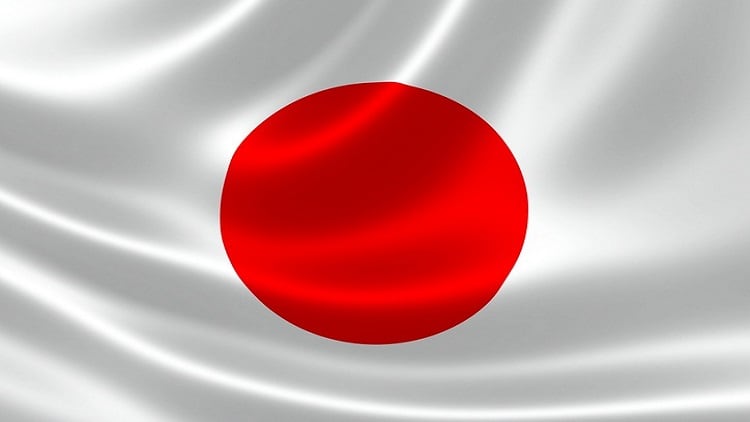Yakult Singapore launched in March its newest product in the city-state.
Known as Yakult Gold, the product is a reformulation of the firm’s flagship Yakult Original, with reduced sugar and 1.5 µg of vitamin D added.
The new addition, which qualifies as a Nutri-Grade B product, contains 6.5 grams of total sugar per 100 ml serving – about 2.5 times lesser in sugar than Yakult Original.
A similarity between the two lies in their amount of bacteria count. Both Yakult Original and Yakult Gold contain over 10 billion of the firm’s signature probiotic strain Lactobacillus paracasei strain Shirota.
Speaking to NutraIngredients-Asia, the company said the new addition would offer a new option for consumers, while at the same time, allow the firm to advertise the product.
“As you know, Singapore has started the SSB-S regulations from the end of last year. Unfortunately, Yakult Original is Nutri-Grade D, and we cannot advertise it.
“Therefore, we have to launch a new product which qualifies as either Nutri-Grade A or grade B [in order to continue advertising the product]. However, to reformulate it into Nutri-Grade A will make the product taste just like water, and that is how we came out with Yakult Gold, a Nutri-Grade B product,” Kawada Hiroyuki, managing director, Yakult Singapore said.
Since December 30 last year, Singapore implemented the Nutri-Grade labelling and advertising prohibition measures in a bid to curb rising number of diabetes cases.
Under the framework, products that fall under Nutri-Grade D, or containing more than 10 grams of sugar per 100ml, could not be advertised across all media platforms, including broadcast, print, online channels, except at point-of-sale platforms.
To qualify as Nutri-Grade A, a product cannot contain sweetener and its sugar content should be 1 gram or less per 100ml. To qualify as Nutri-Grade B or C, a product should limit its sugar to less than five grams or 10 grams per 100ml respectively.
Kawada said that Yakult Singapore had engaged the head office in Japan to work on the new formulation – a process which took about a year with the company experimenting with different versions before finalising the formulation.
One of the reformulation challenges is to achieve the same taste as Yakult Original, but with less sugar.
“We also wanted to achieve a similar taste as Yakult Original, with Nutri-Grade B, and so, it is not just about adjusting the sugar level,” said Sunami Masaaki, director, Yakult Singapore.
To do so, the crux laid in hitting the right balance between the sourness of the lactic acid bacteria and sweetness, Kawada explained.
“We launched Yakult in 1935 in Japan and we have a long history.
“Our founder, Dr. Minoru Shirota, is thinking how we can take in this useful and unique bacteria strain [L. casei Shirota]. So having a good taste is very important.
“Lactic acid bacteria tastes very sour, so we added sugar to ensure that the sweetness and the sourness hits a good balance.”
Aside from Singapore, Yakult has also launched its cultured milk beverage fortified with calcium or vitamin D in other markets.
“Definitely Yakult Gold will provide more variety to the consumers with its lower sugar level and the addition of vitamin D. Also, although Yakult Original is Nutri-Grade D, still, our product is a probiotic drink and is good for health,” Sunami added.
Yakult Gold, Light, and Ace Light
Aside from Yakult Gold, the company is also selling two other products that come with lower sugar in Singapore, namely Yakult Light and Yakult Ace Light.
Both Yakult Gold and Yakult Light contain vitamin D and 10bn CFU of L. casei Shirota, however, the latter is sold exclusively in schools and hospital settings and contains only natural sugar, while the former uses sucralose as a sweetener.
As for Yakult Ace Light, it contains a higher amount of L. casei Shirota at a CFU count of 30 billion. It uses stevia as a sweetener.
Yakult Ace Light also has a lighter taste while Yakult Gold has a taste closer to Yakult Original.
Citing Nielsen data, the company said that Yakult Original was the bestselling cultured milk drink across the Singapore market last year.
Gut-brain axis research
While Yakult’s products are known for its digestive health benefits, the company has been studying the effects of L. casei Shirota on the gut-brain axis.
In fact, it is currently conducting a clinical trial on the gut-brain axis in Singapore with the National University of Singapore.
“Yakult is expanding its product line to include options that specifically target common health conditions such as digestive issues, immunity, and brain health.
“Furthermore, the company is investing in research to further our understanding of the microbiome and its impact on overall health and wellness, including the gut-brain axis,” said Yap Chi Ming, microbiologist cum public relations officer, Yakult Singapore.
The company has also been conducting cognitive health related studies in Japan.
Back in 2017, it published the findings of a clinical study which looked at how the supplementation of L. casei Shirota could help maintain sleep quality during a period of increasing stress.





